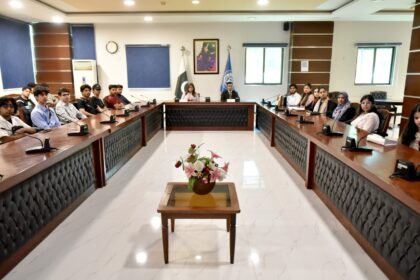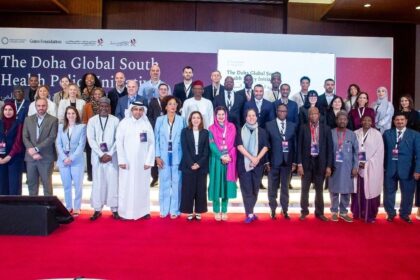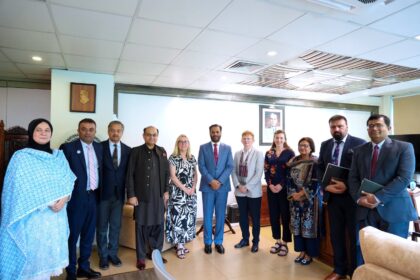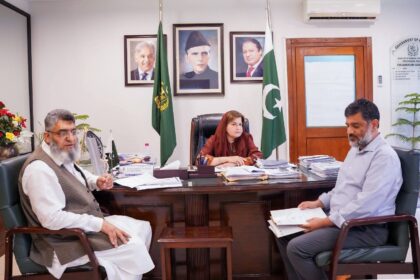Ambassador Dr. Khalid Ejaz Discusses India-Pakistan Relations, Water Security, and Diaspora Integration in Exclusive Interview with Jamia Institute
In an exclusive interview with Portugal’s Jamia Institute, Pakistan’s Ambassador Dr. Muhammad Khalid Ejaz offered detailed perspectives on the ceasefire with India, concerns over the Indus Waters Treaty, and the Embassy’s efforts to support the Pakistani diaspora in Portugal. Highlighting integration challenges amid rising far-right sentiments, he emphasized dialogue, cultural exchange, and civic participation as tools for harmony.
In a candid and wide-ranging conversation with the Jamia Institute, Ambassador Dr. Muhammad Khalid Ejaz, Pakistan’s envoy to Portugal, delved into pressing issues affecting Pakistan both regionally and abroad. The discussion centered on India-Pakistan relations, the threat to the Indus Waters Treaty, and integration of the Pakistani diaspora in Portugal amid shifting political dynamics.
Addressing concerns over the India-Pakistan ceasefire and the alleged threats to Pakistan’s water access, Ambassador Ejaz said India’s “irresponsible and unilateral actions” had previously pushed the region to the brink of conflict. Though military tensions have cooled, he warned that the core issue—the Kashmir dispute—remains unresolved. He reaffirmed Pakistan’s longstanding position that a UN-backed referendum must be held to allow Kashmiris to determine their future.
Ambassador Ejaz also voiced Pakistan’s firm opposition to India’s decision to suspend its obligations under the Indus Waters Treaty, an international agreement brokered in 1960 by the World Bank. As a downstream state, Pakistan depends on water originating in Indian-administered territory. Unilateral moves, he warned, risk setting a dangerous precedent in international law and regional stability.
Touching on the broader humanitarian consequences, he noted that collective punishment against Muslims in Kashmir following the Pehalgam incident—such as demolitions and arbitrary arrests—undermines India’s global standing and violates basic human rights. He called on the international community to uphold justice and fairness when considering India’s role in global platforms.
Turning to the Pakistani community in Portugal, Ambassador Ejaz reflected on the diaspora’s reaction to recent events. He described their fear and emotional distress over the regional tensions and praised the solidarity shown by the wider Muslim community in Portugal, including expressions of sympathy from Kashmiri, Mozambican, and other Muslim leaders.
In light of Portugal’s recent political shifts, particularly the rise of the far-right CHEGA party, the Ambassador underscored the need for proactive engagement. “Let’s start some dialogue,” he said, urging the Pakistani community to connect with local officials, journalists, and academics to present their side of the story and avoid isolation. He acknowledged existing challenges such as language barriers, housing costs, and public service access, especially for new and younger immigrants.
The Embassy has launched several community outreach initiatives, including soft networks for Pakistani women and youth, cultural bazaars, and integration forums in schools and universities. With strong support from his team, especially Mr. Umair, the Head of Chancery, the Embassy has facilitated open discussions and cultural exchanges to foster understanding and inclusion.
Looking ahead to local elections, Ambassador Ejaz expressed optimism that the Pakistani community can and should participate more actively in Portugal’s civic life. “They can have some representation in the parishes and councils,” he noted, adding that political involvement is key to securing the community’s rightful place in society.
Drawing from his diplomatic experience in countries like Australia, the U.S., Argentina, and Kuwait, Ambassador Ejaz emphasized that Portugal’s welcoming and tolerant society offers great potential for integration. He recalled a particularly moving moment during a visit to Mértola, where he was invited to pray in a former mosque that is now a church—an experience he described as emblematic of Portugal’s cultural openness.
Closing the conversation, he expressed confidence that such mutual respect and inclusivity could form the basis of stronger Pakistan-Portugal ties, enrich both societies, and serve as a model of multicultural harmony.
Interview link: https://www.jamiainst.org/en/post/exclusive-interview-with-pakistan-s-ambassador











